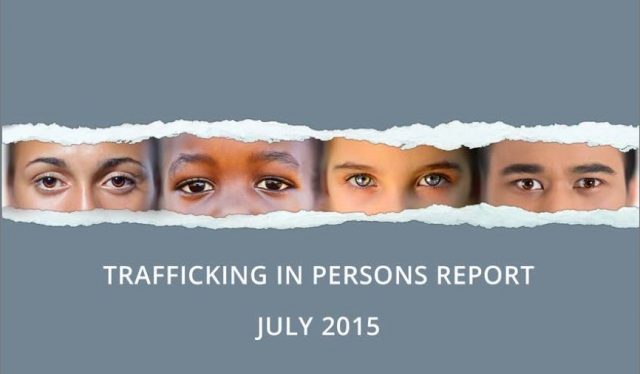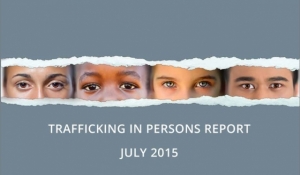Georgia’s Efforts Examined in the U.S 2015 Trafficking in Persons (TIP) Report
The U.S. Department of State published its annual Trafficking in Persons (TIP) report on July 27. The document is the U.S. Government’s principal diplomatic tool to engage foreign governments on human trafficking. It is also the world’s most comprehensive resource of governmental anti-human trafficking efforts.
This year’s Report places a special emphasis on human trafficking in the global marketplace. It highlights the hidden risks that workers may encounter when seeking employment and the steps that governments and businesses can take to prevent trafficking, including a demand for transparency in global supply chains.
"The bottom line is that this is no time for complacency. Right now, across the globe, victims of human trafficking are daring to imagine the possibility of escape, the chance for a life without fear, and the opportunity to earn a living wage," John F. Kerry, U.S Secretary of State, noted about the document.
Looking closely at Georgia, the report states that the country “is a source, transit, and destination country for women and girls subjected to sex trafficking, and men, women, and children subjected to forced labor. Women and girls from Georgia are subject to sex trafficking within the country, in Turkey, and, to a lesser extent, in China, Egypt, Greece, the United Arab Emirates, and Russia. Women from Azerbaijan and Central Asian countries are subject to forced prostitution in Georgia’s commercial sex trade in the tourist areas of Batumi and Gonio in the Adjara province.”
The document informs that experts report women are subject to sex trafficking in saunas, strip clubs, and hotels. “The majority of identified trafficking victims are young, foreign women seeking employment. Georgian men and women are subject to forced labor within Georgia and in Turkey, Iraq, Russia, Azerbaijan and other countries. Georgian migrants pursuing employment in agriculture and other low-skilled jobs contact employers or agents directly, only later becoming victims in their destination country. In recent years, foreign nationals have been exploited in agriculture, construction, and domestic service within Georgia” – the document reads.
TIP also stresses that Georgian, Romani, and Kurdish children are subjected to forced begging or are coerced into criminality. No information is provided about the presence of human trafficking in the separatist regions of Abkhazia and South Ossetia.
Taking these shortcomings into consideration, the document underlines that the Government of Georgia does not fully comply with the minimum standards for the elimination of trafficking; however, it is making significant efforts to do so. TIP claims that investigations, prosecutions, and convictions increased during the reporting period.
The fact that the Prime Minister signed a decree establishing a labor inspectorate with authority to enforce preventative measures related to labor trafficking, and that the government increased the number of anti-trafficking mobile units from three to four, providing law enforcement more resources and personnel to conduct trafficking investigations is positively evaluated.
However the report claims that law enforcement’s limited investigative capabilities hampered trafficking investigations. Experts reported investigators focused on interrogating victims for evidence gathering, rather than interviewing them to determine whether or not they were potential victims.
“The government did not outline a strategy to systematically combat street begging; experts reported the police refused to investigate several cases of forced begging, claiming street begging is not a violation of child’s rights under current legislation” – the document stresses.
In the TIP Report, the Department of State places each country onto one of three tiers based on the extent of their governments’ efforts to comply with the “minimum standards for the elimination of trafficking”. While Tier 1 is the highest ranking, it does not mean that a country has no human trafficking problem; it indicates that a government has acknowledged the existence of human trafficking, made efforts to address the problem, and complies with the TVPA’s minimum standards. Tier 3 is the lowest ranking assigned to countries whose governments do not fully comply with minimum standards to eliminate trafficking and are not making significant efforts to do so. This year Georgia remains in Tier 2, where it was relegated for the 2012 reporting period, after six straight years in Tier 1.
Nino Japarashvili












